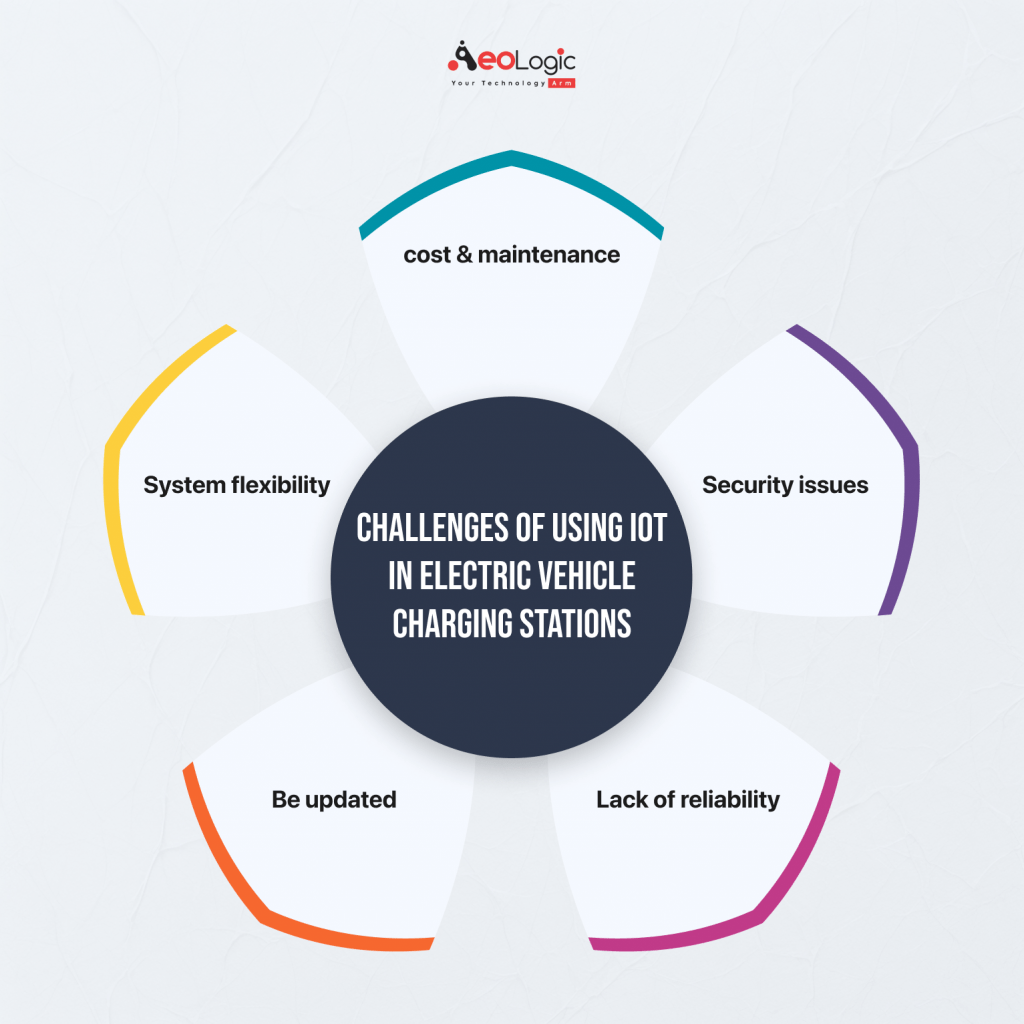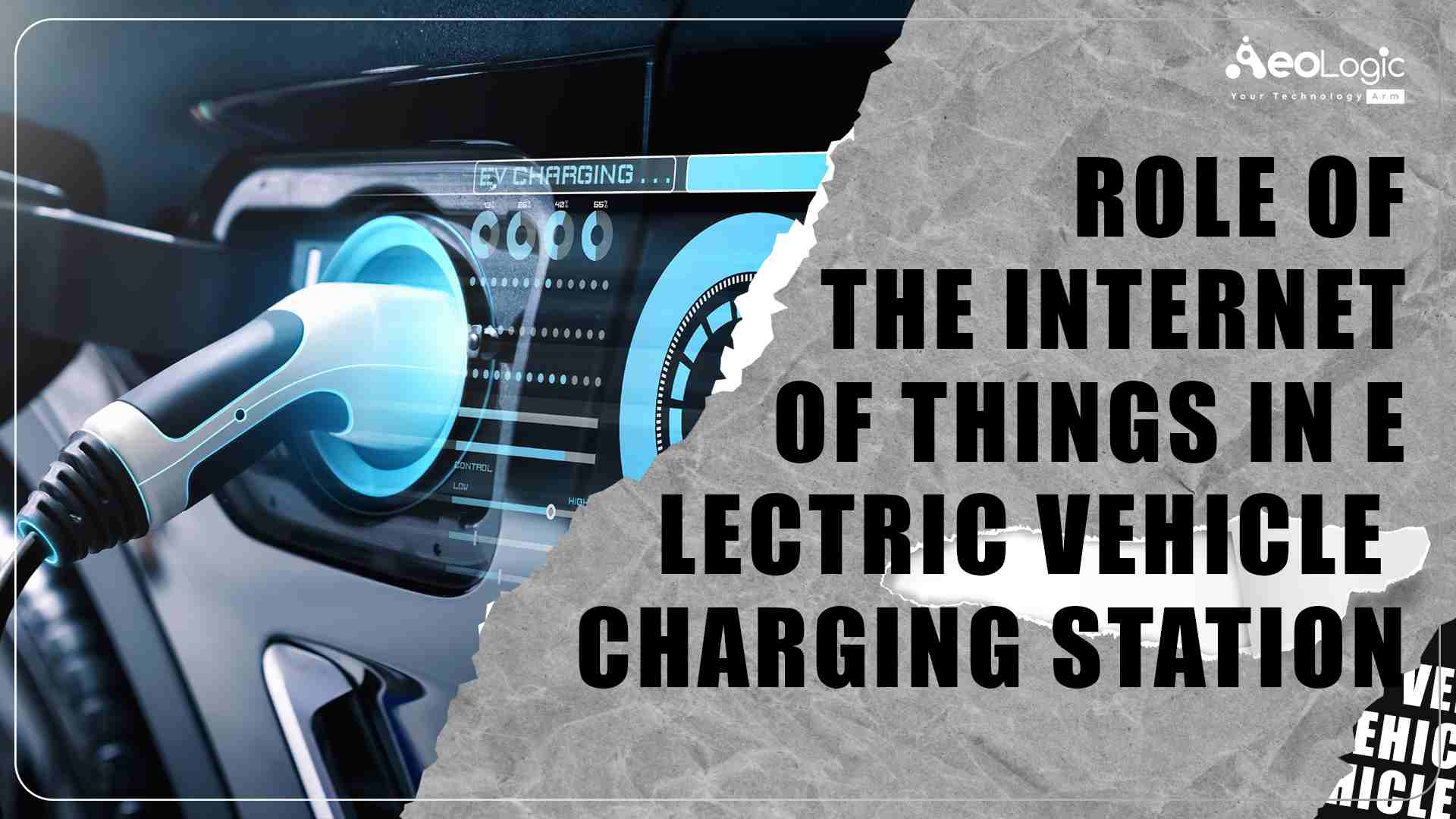The electric vehicle charging station is an essential part of the electrical grid. The charging station supplies electricity to recharge the batteries of electric vehicles. The thing about these stations is that they need to be able to operate in emergency situations, as well as have intelligent monitoring capability which will always keep them running smoothly and efficiently. The article talks about the role of IoT in the electric vehicle charging stations. There are a number of benefits that are discussed in this article like saving money, safety, and convenience.
With the steep rise in electric vehicle sales, we are starting to see more and more EVs on the road. This means that it is now time to start thinking about charging their batteries. In this article, you will find out what the role of IoT is in EV charge station networks and how it can help you. You will also learn about a new software solution to help your business take full advantage of all that IoT has to offer.
Let’s begin!
Table of contents
- Overview
- What is the Internet of Things?
- How IoT can Track Electric Vehicle Charging Stations to Decrease Grid Load
- Top Benefits of using IoT in Electric Vehicle Charging Stations
- Challenges of using IoT in Electric Vehicle Charging Stations
- Conclusion
Overview
The internet of things (IoT) is becoming increasingly prevalent in our everyday lives, and its applications are only limited by our imagination. One area where the IoT is beginning to have a major impact is in electric vehicle (EV) charging stations.
The Role of the IoT in EV Charging Stations is Two-Fold
First, the IoT can be used to remotely monitor and manage charging station operations. This includes monitoring charger availability, managing user access, and providing real-time updates on charger status.
Second, the IoT can be used to provide data that can be used to improve the efficiency of charging station operations. This data can be used to optimize charger utilization, identify areas for improvement, and track trends over time.
The benefits of using the IoT in EV charging stations are numerous and far-reaching. By leveraging the power of the IoT, we can make EV charging stations more efficient, easier to use, and more reliable.
Also Read: How RFID Solutions Help in Inventory Management
What is the Internet of Things?
The internet of things (IoT) is playing an increasingly important role in electric vehicle (EV) charging stations. By connecting devices and systems, the IoT can provide real-time data that can be used to optimize station performance and improve the customer experience.
For example, the IoT can be used to monitor charging status and identify when a charge is complete. This information can be used to automatically stop billing or send a notification to the customer.
The IoT can also be used to track energy usage and demand patterns. This data can help operators better understand how their stations are being used and identify opportunities for improvement.
finally, the IoT can help EV charging station operators manage their assets and operations more effectively. By tracking equipment health and monitoring power usage, operators can reduce downtime and improve efficiency.
Also Read: Why Is CRM Software a Game-changer When It Comes to Delivering Better Customer Experiences?
How IoT can Track Electric Vehicle Charging Stations to Decrease Grid Load
As electric vehicles (EVs) become more prevalent, it’s important to have a way to track charging stations to decrease grid load. The internet of things (IoT) can be used for this purpose.
Charging an EV takes a lot of power, and if many people are charging their EVs at the same time, it can put a strain on the grid. By tracking charging stations with IoT, we can see when they’re being used and how much power is being drawn. This information can be used to regulate the flow of power so that the grid isn’t overloaded.
IoT can also be used to monitor the status of charging stations and their batteries. If there’s a problem with a station, it can be fixed quickly before it causes any disruptions.
Overall, using IoT to track electric vehicle charging stations is a smart way to manage the increasing demand for EVs while keeping the grid stable.
Also Read: The Role of AI in Education And Learning: Just Promises Or Revolution
Top Benefits of using IoT in Electric Vehicle Charging Stations
The benefits of using IoT in electric vehicle charging station
The use of IoT in electric vehicle charging stations is currently a hot topic in the industry, with many companies looking to implement this technology. The main benefits are as follows:
1. It helps to save money by reducing energy costs.
2. It helps to reduce carbon emissions by reducing the amount of electricity being consumed.
3. It helps to improve customer satisfaction by providing them with accurate information about their vehicle’s charging status even when they’re away from home or work.
4. It helps to increase revenue for your business by helping you provide better services to your customers and increasing profits from sales through improved marketing campaigns that use data collected from customers’ vehicles during their visits to your facility.”
5. It helps to improve the overall health of your facility by reducing carbon emissions and improving air quality.
6. It helps to reduce the number of accidents on your property by providing customers with real-time information about their vehicle’s charging status, even when they’re away from home or work.”
Challenges of using IoT in Electric Vehicle Charging Stations

The challenges of using IoT in electric vehicle charging stations are:
The cost of implementation and maintenance: It is not easy to install the system and its maintenance cost is also a big challenge.
Security issues: The system needs to be protected from hackers or other security threats.
Lack of reliability: The battery needs to be charged properly and it cannot be plugged in if it is not fully charged.
The system needs to be updated: The charging station needs to be upgraded regularly so that it can accommodate the latest technologies and make sure they are working properly.
The system is not flexible: The charging station needs to be updated regularly so that it can accommodate the latest technologies and make sure they are working properly.
Conclusion
The internet of things (IoT) is playing an increasingly important role in the development of electric vehicle (EV) charging stations. By connecting devices and systems, the IoT can help to optimize EV charging station operations and improve the user experience.
For example, by collecting data on usage patterns, the IoT can help to identify opportunities for improvement such as off-peak discounts or peak-use surcharges. In addition, the IoT can also be used to provide real-time information on charge availability and status, helping EV drivers to plan their journeys more effectively.
As the EV market continues to grow, we can expect to see the role of the IoT in electric vehicle charging stations increase even further. If you are interested in elevating your businesses using technology, connect with our industry experts at Aeologic Technologies.
Also Read: The Role of AI in Education And Learning: Just Promises Or Revolution
Related Blogs:
- How AI/ML Can Change the Public Transportation Industry
- Transforming Business With Digital Technology in the Oil Palm Industry in India
- Importance of Digital Asset Management in the Retail Industry
- How AI is Transforming the Agriculture Industry
- 10 Ways to Use Artificial Intelligence to Improve Business Processes
- The Future of IoT Technology in Convenience Stores
- Building Manufacturing Resilience Through AI and ML

I’m Deepika Pandey, an SEO strategist and content writer with 6+ years of experience. I create SEO-friendly content that drives traffic and engages readers. I combine data insights with creativity to help businesses grow their online presence effectively.






